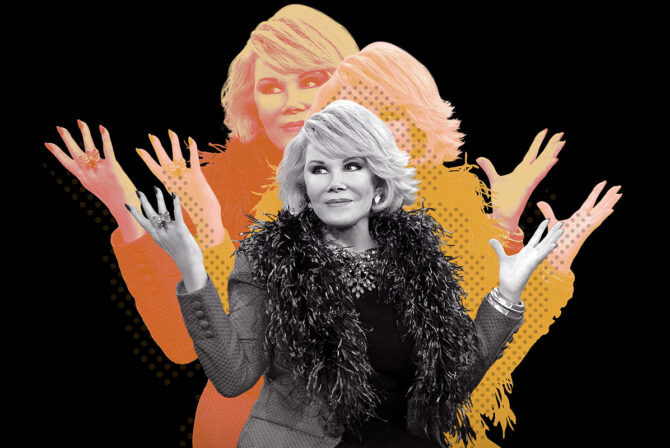This is an excerpt from “The Bridge Ladies,” a new memoir by Betsy Lerner.
I always thought my mother was embarrassed by my grandmother’s Russian accent and old world ways. She wore her hair in a bun held together by netting that, turned upside down, could have doubled as a bird’s nest. She colored her hair black with a tube of something that resembled shoe polish. She gripped a sugar cube between her front teeth when she drank tea, and used Vaseline exclusively and liberally on her entire body, and then kept pennies in the empties.
“Here,” my mother would say, pushing the phone toward us to say hello to my grandmother. The regular Sunday night call to her parents always seemed like such a chore, placed more out of duty than love. Only now, she speaks with great pride about the young Russian immigrant who signed up for language lessons as soon as she came through Ellis Island. I can’t tell if my mother is scrubbing her history.
When my mother finally told my sisters and me about my grandmother’s violent and tragic past, it was impossible to comprehend the magnitude of trauma this sweet, gentle woman had survived. She and her two sisters discovered their parents murdered in their home during the Kiev pogroms of 1919.
I want to know everything, but all my mother will say is that she had nightmares her whole life and that she would cry out in her sleep.
“It was very, very traumatic.”
When I challenge her about keeping all of this secret, she shrugs, “What can I tell you—protect the children. That’s how I was raised? Was it right? I guess not.”
“Mom, how could you not have told us?”
“It was the culture, Betsy. Go question culture.”
“Did she long for Russia?”
“She loved this country, its ideals, everything it stood for. I was born on Washington’s Birthday and my brother was born on Election Day. My mother took it as a good omen.”
When she first arrived, my grandmother worked in a millinery factory, but once her English improved enough she landed a job as a saleswoman at Rusk’s one of Manhattan’s first elegant department stores.
“She loved clothes and she would buy them with her discount. She loved I. Miller shoes, a very fancy shoe store, like Ferragamo today.”
The next time I am in New York, I attempt to find the store on West 47th Street. I don’t see it at first. The building is surrounded with scaffolding and cranes looming. I peek through the fencing and there it is, a once grand building made of white stone now blackened with soot. The store had catered to actresses and through the grime I make out the names Mary Pickford and Ethel Barrymore etched into the façade where their statues once stood, recessed into the building like Greek gods.
A man on the construction site tells me it’s coming down in a few days. I’m seized with panic; it suddenly feels as if this small detail from my grandmother’s life is about to be demolished and with it every trace of her. I want to stop the flow of traffic on the busiest corner of New York City and tell everyone how she shopped here, a young immigrant extending her foot like a Russian aristocrat as a salesman removed a shoe from its tissue.
Read More:
How My Wife & I Created a Surname of Our Own
When Is It OK for Kids to Use Snapchat?
I’m Really Bad at Saying No And It’s Stressing Me Out







